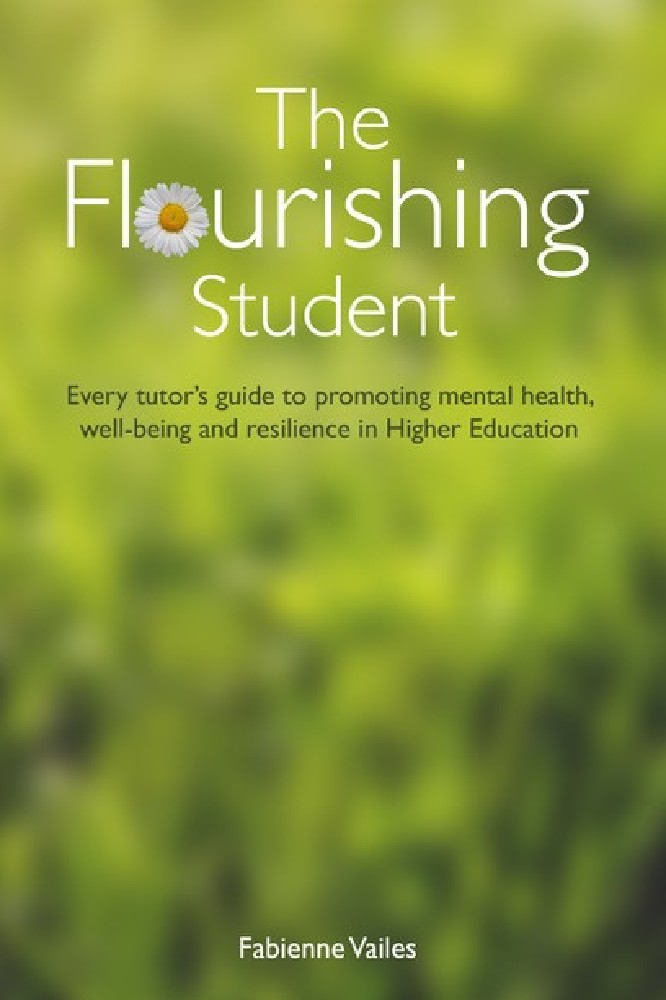If you are one of the 420,000 students who started University this term and are wondering how to make the most of your first year, then language lecturers Fabienne Vailes and Amy Lewis from the University of Bristol have some advice to share.

Fabienne Vailes
Make stress your friend
When you find yourself in a new environment (new city, new accommodation, surrounded by strangers), it is normal to feel nervous and slightly stressed as you are completely out of your comfort zone. But you need to remember that stress can be your friend and that you have options when under stress. Stress is a physical response to a challenging situation. Stress means more blood-flow to your muscles and to your brain. In the short term, this can be useful. But long-term or chronic stress needs to be managed.
Talk to your peers and staff
Research shows that students do best when they attend seminars and talk to their peers as well as their tutors. Don’t be afraid to ask questions to gain clarity and understanding. Remember that other students are probably experiencing the same feelings and emotions as you are, so seek out others. It doesn’t matter who; it could be friends, family, tutors, work colleagues (if you work).
Understand and accept yourself and the way you work
You are unique. There is nobody like you in the whole world so there is no point comparing yourself to others, particularly unfavourably. I always suggest to my students to compare themselves to themselves yesterday. Do you feel you have grown and expanded? That’s the only important question. What works for other students might not work for you. Simply be curious and flexible. Observe, be aware and adapt your learning and planning techniques.
Plan
Plan your work, your time and your rest. Learn to manage your time and your workload. Unlike secondary school, at University nobody will tell you what to do next. Are you clear on what you would like to achieve during this academic year? Speak to your personal tutor if you already know you cannot do this, or your way is not working. And the earlier, the better! Seek help early before it is too late. If you want to understand, act. The learning is in the doing.
Exercise and get outside
Make sure you take regular breaks when you are studying or working and that you get outside. Exercise! What is your favourite sport or activity? Can you join a club organised by your Student’s Union and keep fit whilst socialising and making new friends? It is important that you learn to take care of your body and of yourself. A good night's sleep and a healthy diet both contribute to your physical health too. We often forget or overlook these simple aspects when we are busy or feeling stressed.
Be aware of your unhealthy coping strategies
What do you do when you are feeling stressed? Being open and honest with yourself and taking a good look at your coping strategies will be extremely beneficial. It will enable you to notice the difference between a resourceful and unresourceful behaviour or stage and to see them in a different light. You will be able to identify and minimise them and most importantly not let them get out of control.
Check your emails and respond to them
Your tutors and others in the University will try to contact you by using your University email address. Make sure that you check your emails regularly. If your inbox is getting full and you can’t cope with the volume of information and emails sent to you, don’t hide from stress. Face it, accept it and control your response to it.
Familiarise yourself with your new environment
Ensure that you clearly understand your study programme and the different, independent, enquiry-based approach to learning at University. Do you know what is expected of you and what you will be required to achieve over the course of your academic year? Familiarise yourself with the marking criteria and the reading list. Do you understand the difference between a 2:2 and a First and do you know what you have to do, or write in your essay, to get the grade you want?
Engage with your studies, University life and feedback
Attend your lectures and seminars and ensure that you participate in class. Your mark is not the most important thing. Spend some time looking at the feedback and comments given on your essay or piece of work. They will tell you how to bridge the gap between where you currently find yourself (2:1 for example) and where you want to be (1st). The comments and marks given on your assignments is simply feedback on how well you performed on the task, how well you understood the question, or analysed a topic. It is NOT a reflection on how intelligent, capable or clever you are.
Know that you are worthy
When we arrive in a new environment which is unknown it is easy to start worrying about your skills and knowledge and to feel less deserving and worthy than others around us. You deserve to be at University as much as your peers; not only because you most likely worked hard for your A-Levels, but also because you were offered a place by a University. You belong there. So, enjoy University life and remember that as Neale Donald Walsh said 'life begins at the end of our comfort zone’. Good luck! Fabienne Vailes is French language director at the University of Bristol and author of the new book 'The Flourishing Student: Every Tutor’s Guide to Promoting Mental Health, Well-Being and Resilience in HE' (Practical Inspiration Publishing). www.flourishingstudent.com


